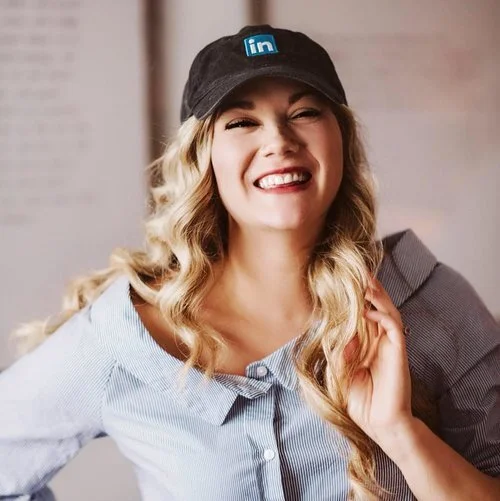This month we kick off endometriosis awareness month with a very special story of Fertility. It is something we thought would really resonate with our readers who are battling gynecological issues. Grad your kleenex and settle in with Michaela.
Please tell us about yourself
I’m Michaela, I’m 34 years old and I was born and raised in Ottawa. I was recently diagnosed with stage 4 endometriosis after a decade of pain and infertility.
“I cried, because finally somebody, ANYBODY, was telling me what I knew to be true.”
Michaela I want our readers to get to know about your endometriosis journey. Can you share with us how it all went down over the years?
I landed in the ER back when I was 24 years old for abnormal bleeding. It had been weeks of pain when I was sitting and walking, and when I started bleeding from my anus (and Googled what that symptom could mean), I decided enough was enough. The first question that I was asked after giving the nurse all my information was:
“Are you sure that this isn’t your period? Maybe you’re just confused.”
I’ll never forget that because it was the first time that I reached out for help and was told it was probably in my head; that I probably just had my own anatomy wrong. During that visit, I was given an internal ultrasound, which at the time was very painful. They found an endometrioma and possible fluid, but told me that it didn’t mean I had endometriosis, and that the cyst was too small to require an operation. Basically I walked away with a shrug and parting words of “Hey, at least it’s not cancer!” from the same nurse that asked me if I had confused bleeding from my anus with vaginal bleeding. That experience scarred me enough to believe the lie that nothing was wrong. That pain was just a part of life, and cysts happen. I needed to just deal with it...and do it quietly.
Over the next ten years, I had seasons of pain, fatigue, and periods that made me afraid of my own body, but I functioned the best I could, thinking that everybody else must be dealing with this too.
It wasn’t until after about 6 months of trying to conceive naturally that my doctor started to worry. She sent me for another ultrasound, where they found the same endometrioma. She still didn’t use the word “Endometriosis” to me. She referred me immediately to my fertility doctor, who ordered more tests.
It was during one of those ultrasounds that the tech mentioned “my endometriosis” when probing inside me. When she saw my face, she realized that I hadn’t been diagnosed. I cried, because finally somebody, ANYBODY, was telling me what I knew to be true. She also had Endometriosis and we talked off-the-record for a half hour afterward.
My fertility doctor finally sat me down with my husband, and said probably a lot of words, but all I heard was “Endometriosis” “5% chance of conceiving naturally”. My world crumbled.
I spent the next year enduring failed treatments, moments where I passed out from bowel pain, and overall deteriorating health. Thankfully, during this time, knowing that I needed serious help, I found a therapist and a naturopath that actually listened and understood me, and a community of women battling endo that helped open my eyes to treatment options available.
I was referred to Dr. Shenassa and was scheduled for surgery a few months after our first appointment. My first excision surgery was on December 10, 2020. It took 2.5 hours, and was described by Dr. Shenassa as “even worse than expected”. I had lesions removed from my bowels and bladder, mesh put it under my ovaries to prevent further adhesions, a 4 cm endometrioma removed from my left ovary, and a paratubal cyst removed from my right side.
Perhaps most shockingly, I woke up to news that they had removed my appendix. Apparently, I had had Appendicitis and Dr. Shenassa believed that I had already had an appendix attack that was masked because of my overwhelming endometriosis pain.
Thank you so much for sharing all of that, I know its heavy. Are you able to describe what your endometriosis pain feels like?
My pain before my surgery was almost everywhere. I would have dull pain on alternating ovaries, as well as a pulling sensation on my left hip. After ovulation or my period, I would have extraordinary pain trying to have a bowel movement. And when I say pain, I mean that the room would spin, I would throw up, and start shaking because my body would go into shock.
I also had lower back pain and a shooting pain from my right hip to my knee, it felt like a shockwave going down my leg.
Some days it hurt to walk, I would be in the grocery store and have to stop and pretend to look at something because I couldn’t keep walking.
Closer to my surgery, the pain was increasingly worse, but the sneaky thing for me was that I’d have some months prior that were totally fine, and it made me think that maybe the endo had disappeared. It didn’t, and it always came back with a vengeance.
Since you are working at trying to combat the pain, while trying to have a baby, can you describe how the progression of discussions have gone? Did you see your endo specialist first and then the fertility specialist? Or the other way around? And what were each of them telling you to do? Do they work together?
I didn’t really have any choice. Once my doctor suspected Endometriosis, she referred me to the Ottawa Fertility Centre. The plan that my fertility doctor wanted to pursue was at least three rounds of IUIs, then IVF, then surgery if that fails. I had the worst nagging feeling that IUIs were a mistake, that my condition needed to be treated first, but we went ahead with an IUI with injectables. It cost us about $1500 and only worsened my condition.
After that, I knew I needed to get a referral to a specialist. Dr. Shenassa came highly recommended in the groups I was in, and luckily, both my family doctor and my fertility doctor were on board with me pursuing surgery. I feel like my fertility doctor has done a decent job of working with Dr. Shenassa and vice versa. My name came up for funded IVF, and because I was about to have surgery, I’ve been able to defer my treatment until I’ve recovered.
So I would say that things are good now, but I definitely needed to get my education elsewhere and then advocate for surgery prior to any further fertility treatments.
For both the endo pain and the fertility, can you tell us what drugs you’ve tried and what worked/didn’t work?
I have tried birth control, which didn’t touch my pain personally, I’ve gone through about half a bottle of Advil each month, which works but definitely isn’t good for me, I was put on Gonal-F and Progesterone with my IUI, which didn’t work for fertility. I’ve also tried CBD oil, which hasn’t worked for me.
Have you ever reached a point where you had to think outside the modern medicine box? If so, what did you do that helped with the pain? What did you try for fertility (such as acupuncture)?
Of course! I’ve been working with my Naturopath, Dr. Melanie Craig, since last year. I would highly recommend anybody that has a chronic illness to work with a Naturopath if it’s covered. The biggest reason I say that is because many doctors won’t take the time to fully explain what your test results actually mean. I was able to sit down with Dr. Craig and have her explain why each test was done, what my results mean, and also had other tests recommended by her.
She also has me on supplements and an anti-inflammatory diet that’s been a game changer for me. I shared her recommendations with my endo specialist, Dr. Shenassa, and he agreed with all of her recommendations. For me, surgery combined with nutrition has been the treatment I’ve been hoping for.
I’ve also tried acupuncture, which was a bit terrifying considering that I don’t like needles, but I certainly believe in the benefits. I stopped going because the side effects for me personally were way too strong. I had a bad headache for hours afterward, and the last time triggered a panic attack, which was totally unprovoked. Also, it’s not covered by my insurance unless done by an MD.
Generally speaking, are you open to alternative therapies such as osteopathic, pelvic floor, myofascial massage, acupuncture?
Absolutely! I like that people with chronic pain should do whatever is available and accessible that makes a difference. Each body is different and alternative therapies can be really beneficial. Plus, I think sometimes just the act of doing/trying helps us feel more in control of a situation that often feels otherwise. So even if the positive effects are psychological, that matters! I LOVE pelvic floor yoga for Endometriosis and relied on yoga positions post surgery. I also love meditation, and use the Insight Timer daily. I really feel like meditation, as cheesy as it sounds, has helped me learn to stop being at war with my body.
What would you tell our readers in order to help them consider alternative therapies?
I understand the hesitation. I battled depression related to my Endo and infertility and remember believing that if my IUI failed, everything else would too. You start to feel hopeless, and hopeless is a dangerous place to live. I would say, consider this instead: Acupuncture, or massage, or yoga, or nutrition, might not “fix” you, but what if trying that alternative therapy made you feel even 5% better than you do now, would it be worth it? If the answer is yes, give it a try!
And lastly, what would you tell your younger self?
Your pain is valid, your instincts are spot on. You don’t need to suffer quietly or minimize what you know to be true. Have the courage to love yourself enough to ask for help, and love others enough to share your story of survival.
Anything else you want to tell our readers?
If you are reading this, please know that you aren’t alone. You were just taught to keep your lady issues quiet, but the time is now to get loud about chronic pain and illness.


